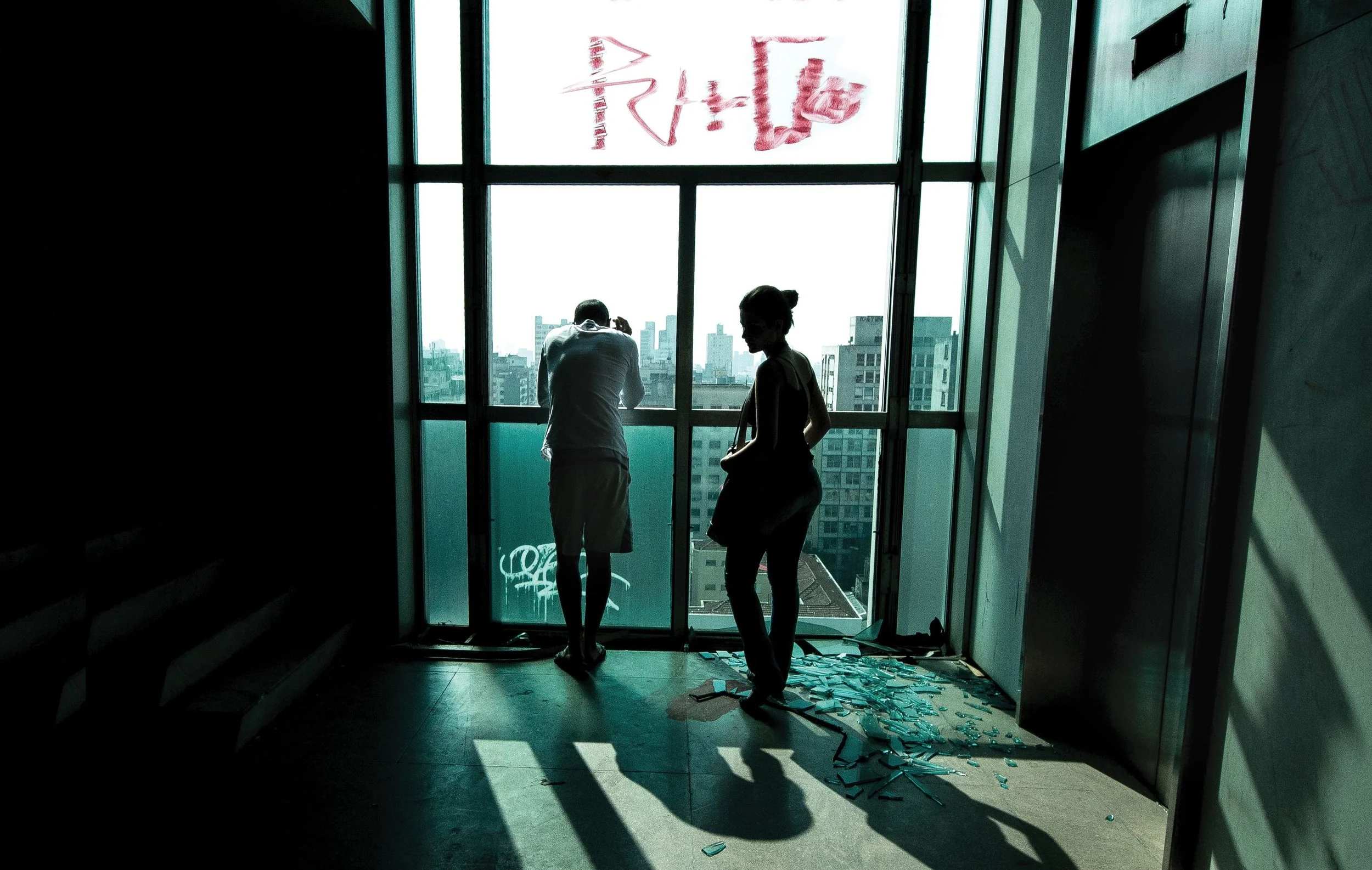This interview was edited for length and clarity.
In SKIN OF GLASS, filmmaker Denise Zmekhol (CHILDREN OF THE AMAZON, SFF 2009) explores her late father's most celebrated work as an architect, a modernist glass skyscraper in the heart of São Paulo, Brazil affectionately known as the Pele de Vidro (“Skin of Glass”), which in the decades following its construction has fallen into disrepair and become occupied by hundreds of unhoused families. The film delicately interweaves the personal and political in a poetic and cinematic meditation on displacement, inequality, and loss.
SFF Programmer Emeritus, Jeff Schmidt caught up with Zmekhol ahead of the film's New England Premiere at Salem Film Fest.
Jeff Schmidt: Before this project, did you ever think that you would want to make a film that had such a strong connection to your own personal story, your own life?
Denise Zmekhol: You know, it's interesting, because in CHILDREN OF THE AMAZON, the film I showed at your festival more than ten years ago, it wasn't about my story, but there was one story that was personal. That was my contact with the environmental activist, Chico Mendes. He was asking me to film his funeral, and that's part of the story of the film because he was assassinated like two weeks after that. So in that story I did tell it from my point of view, because I'm telling the story of the children of the indigenous and rubber tapper kids that I photographed.
And when I started thinking about what I want to do next, you know, before I started this film specifically, I was thinking, oh, I want to make a film without any narration, without archival footage, you know? And, and I ended up doing the same thing - you know, I had to narrate the story because in the first person, it was a very personal. And it's interesting because it's hard not to tell the story of the past, even when you are in the in the present story. There's no way just to be there. I think it's more interesting when you go back and you bring all this history and you go like, “Oh my God, look at the meaning of all this.” You know, it has a different meaning, right? When you know more about the history of that story.
JS: So this film initially began as a book project. Can you explain that origin and how it eventually evolved into a film instead?
DZ: It all started when I found out through a friend of a friend in 2015 that the building that my father had designed that was kind of his masterpiece, was occupied by homeless people. And then we thought about making a book just to highlight all these amazing projects that my father had done that most people in Brazil don't know because he died very young. He was 48. And then one day, I'm telling another friend who is an architect, and he said to me, “Why are you making a book? As a filmmaker you should be making a film.” So I didn't sleep that night. And then I felt like, okay, if I didn't sleep, it's because there's something important here that I have to do, you know? So I decided to go to Brazil and start interviewing people, And I thought, you know, might as well just film them, just in case. And that's how the film started. I shot like 60 interviews at least. You just have to do a lot of research and hear and listen to all these stories to see who is going to be part of your journey and your story, right?
JS: Do you feel like the process of making this film provided you any catharsis in regards to your unresolved feelings with your Dad? Were you able to catch more of a glimpse of who he was?
DZ: Yeah. Thank God, after all that I did. It’s in the process of making the film, you're also in the process of dealing with all these emotions, you know, like sitting in the back of the room when you're editing and I was crying so many times, and of course I was doing therapy. So, you know, I mean, I couldn't have done this film without therapy. It was a lot to process but I feel more empowered now. I understand my father better. So I think the wound that I had, became more like a scar.
JS: What advice would you give to filmmakers that feel like they need to tell their own story, that choose to go down that personal story rabbit hole?
DZ: Yeah, I think you need some supervision and you need to do therapy together, because it does open a lot of wounds. It has a lot of repercussions. Repercussions inside you emotionally. So it's important to go deep and try to put the whole story out.
JS: What's been the reaction from your family about the film?
DZ: Good question. Well, my mother died in 2008, so my brother, he's a little nervous about it. I’ve just finished with the Brazilian Portuguese translated version. I'm going to Brazil and I'm going to show it to him. So he hasn't seen the film yet.
JS: Now that you have completed the film, are you still considering the book project?
DZ: Yeah. I mean, it's just like an idea because, you know, after a film like that, in which I produced, directed and fundraised – it was an expensive film to make - I was a little burned out, but I think it'd be nice to jump to a different media. You know, something I can touch like a a book and turn the pages and work with the drawings. The drawings are so beautiful. There's so many. You know, I just thought it would be such nice work, to just change a little bit the way you tell a story. And it's not necessarily a story, I think it is a book for architects, for students, architects, students. You know, it's not like I'm going to tell the same story or different stories, it will just be about his work. So be very different. I think that would be nice.
SKIN OF GLASS screens in-person during Salem Film Fest at the Peabody Essex Museum on Sunday, March 24 at 12:30pm followed by a virtual Q&A with Denise Zmekhol - tickets available here.






